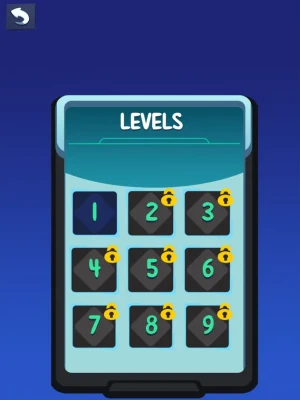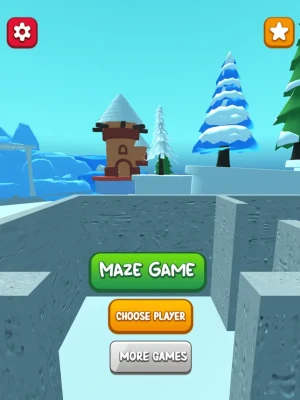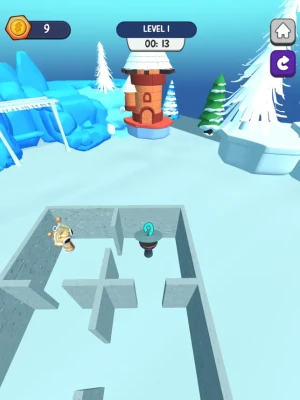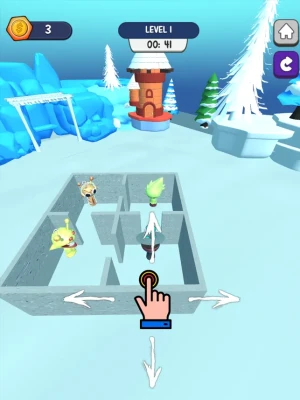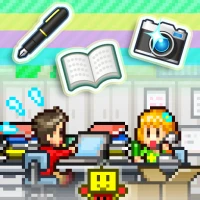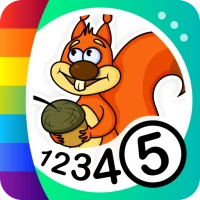
Latest Version
1.0.2
July 27, 2025
Cool As ice in the Maze
Games
iOS
136.1 MB
0
Free
Report a Problem
More About Cool As ice Rhythm Maze
Unlocking Fun and Learning: The Ultimate Guide to Engaging Educational Games
In today's digital age, educational games have become a powerful tool for enhancing learning while keeping children entertained. This article explores the exciting features of these games, focusing on progressive maze challenges, interactive math puzzles, multiple playable characters, brain-training gameplay, and a kid-friendly interface. Let’s dive into how these elements contribute to a fun and effective learning experience.
Progressive Maze Challenges: Navigating Learning Paths
One of the standout features of modern educational games is the inclusion of progressive maze challenges. These challenges are designed to gradually increase in difficulty, allowing children to develop their problem-solving skills at their own pace. As players navigate through intricate mazes, they encounter various obstacles that require critical thinking and strategy to overcome.
These mazes not only enhance cognitive abilities but also encourage perseverance. Children learn to tackle challenges head-on, fostering a growth mindset that is essential for lifelong learning. By completing each level, they gain a sense of accomplishment, motivating them to continue exploring and learning.
Interactive Math Puzzles: Making Numbers Fun
Math can often be a daunting subject for many children. However, interactive math puzzles transform this perception by making numbers engaging and enjoyable. These puzzles incorporate colorful graphics and captivating storylines that draw children into the world of mathematics.
Through interactive gameplay, children can practice addition, subtraction, multiplication, and division in a fun context. The immediate feedback provided by these games helps reinforce learning, allowing kids to understand their mistakes and learn from them. This interactive approach not only improves math skills but also builds confidence in their abilities.
Multiple Playable Characters: Personalizing the Experience
Another exciting feature of educational games is the option to choose from multiple playable characters. This personalization allows children to select a character that resonates with them, making the gaming experience more relatable and enjoyable. Each character may have unique abilities or traits that can aid in solving puzzles and navigating challenges.
This feature encourages children to explore different strategies and approaches to problem-solving. By switching characters, they can experience the game from various perspectives, enhancing their adaptability and creativity. This not only makes learning more dynamic but also fosters a sense of ownership over their educational journey.
Brain-Training Gameplay: Sharpening Cognitive Skills
Educational games are not just about fun; they are also designed to be brain-training tools. The gameplay often incorporates elements that challenge memory, attention, and logical reasoning. As children engage with these games, they are unknowingly exercising their brains, improving their cognitive functions.
Research has shown that regular engagement with brain-training games can lead to enhanced memory retention and improved problem-solving skills. By integrating these elements into gameplay, children develop essential skills that will benefit them in academic settings and beyond. The combination of fun and learning creates a powerful platform for cognitive development.
Kid-Friendly Interface: Ensuring Accessibility
A kid-friendly interface is crucial for ensuring that educational games are accessible to children of all ages. These interfaces are designed with vibrant colors, intuitive navigation, and engaging animations that capture children's attention. A well-designed interface allows kids to focus on learning without being overwhelmed by complex controls or confusing layouts.
Moreover, a kid-friendly interface promotes independence. Children can explore the game on their own, fostering self-directed learning. This autonomy not only boosts their confidence but also encourages them to take initiative in their educational pursuits.
Conclusion: The Future of Learning Through Play
In conclusion, educational games that feature progressive maze challenges, interactive math puzzles, multiple playable characters, brain-training gameplay, and a kid-friendly interface are revolutionizing the way children learn. By combining fun with education, these games provide a holistic approach to learning that engages young minds and fosters essential skills.
As technology continues to evolve, the potential for educational games to enhance learning experiences will only grow. Embracing these innovative tools can lead to a brighter future for children, where learning is not just a task but an exciting adventure. Encourage your child to explore these games and watch as they unlock their full potential through play!
Rate the App
User Reviews
Popular Apps










Editor's Choice











